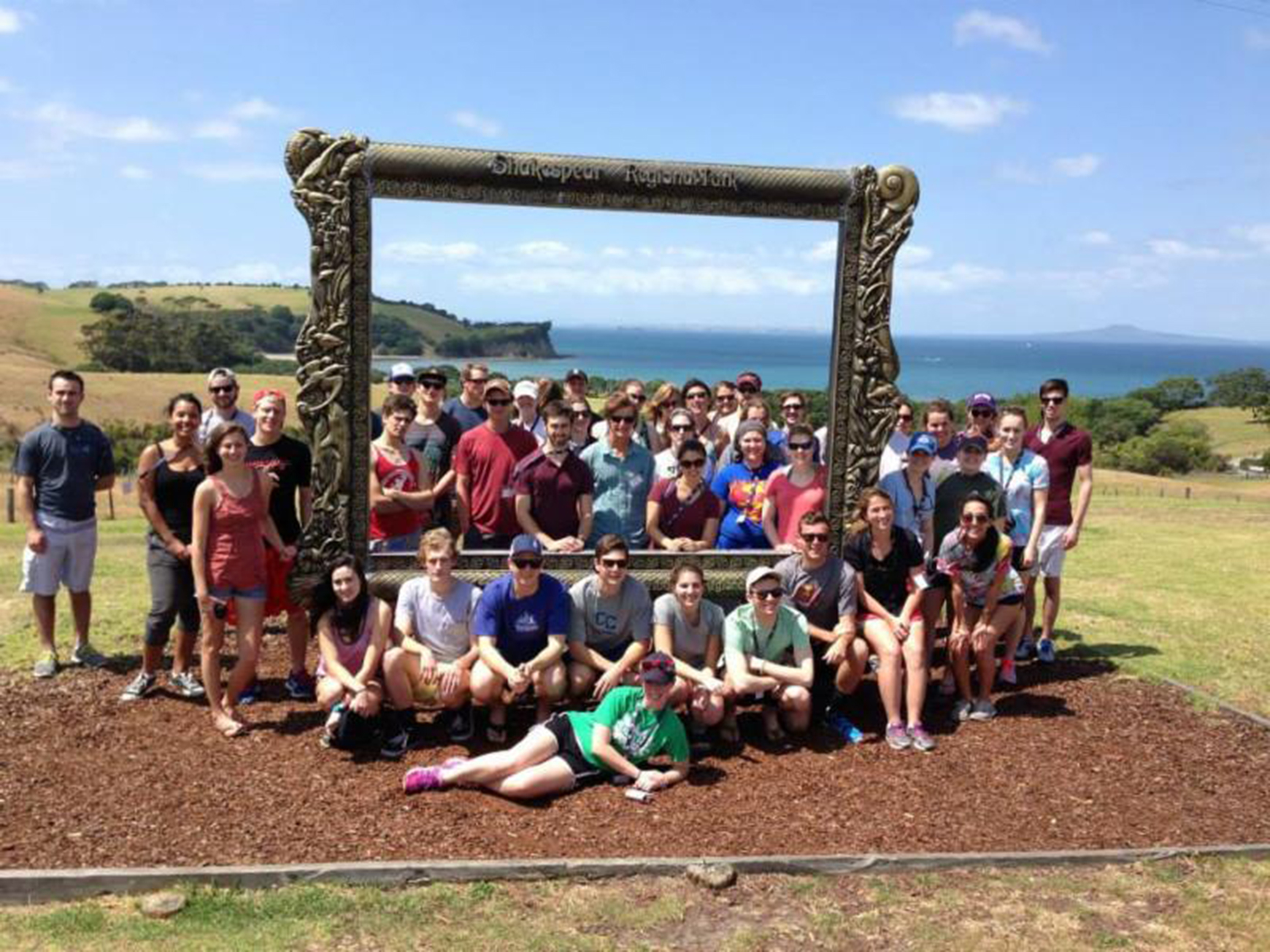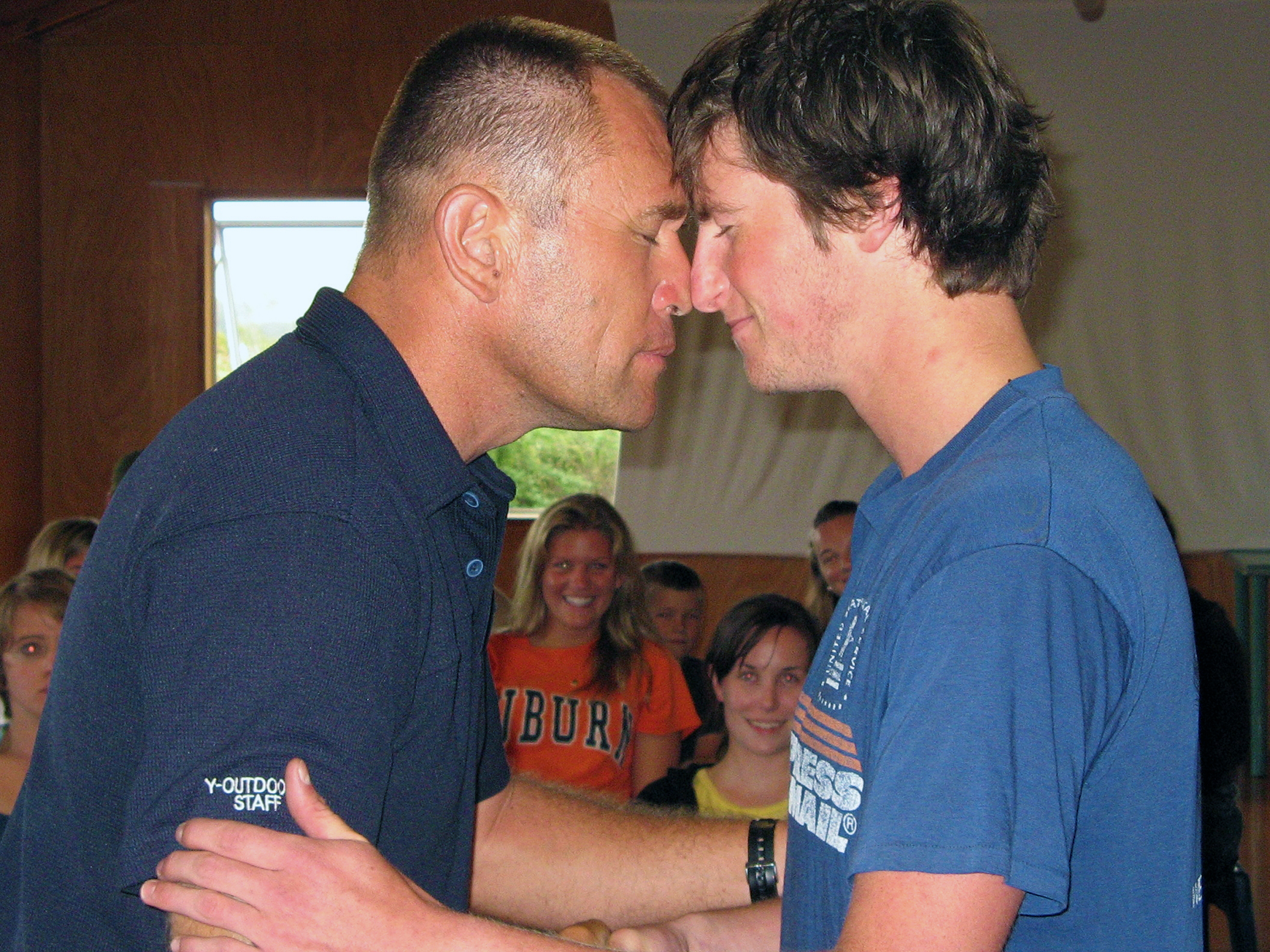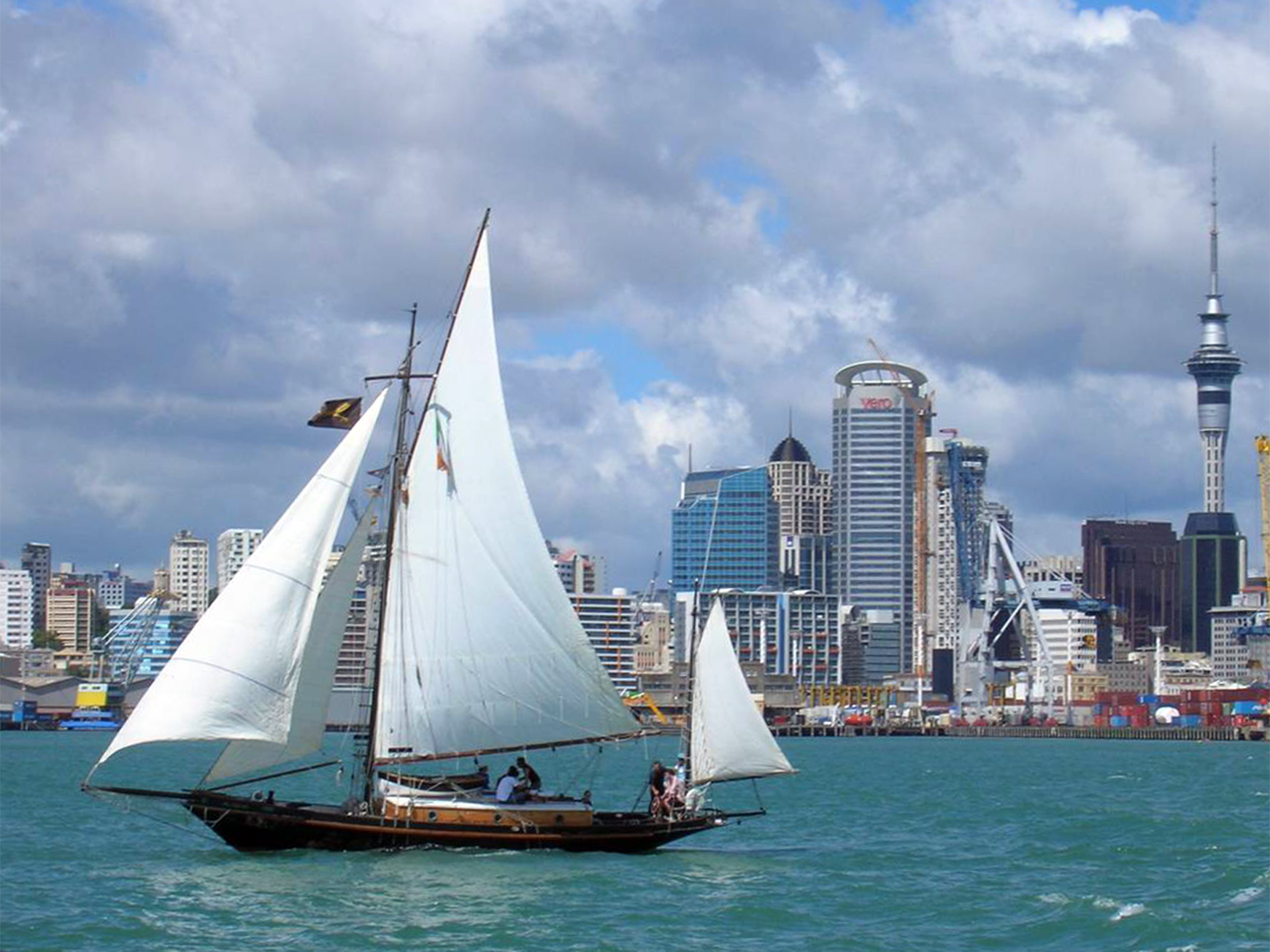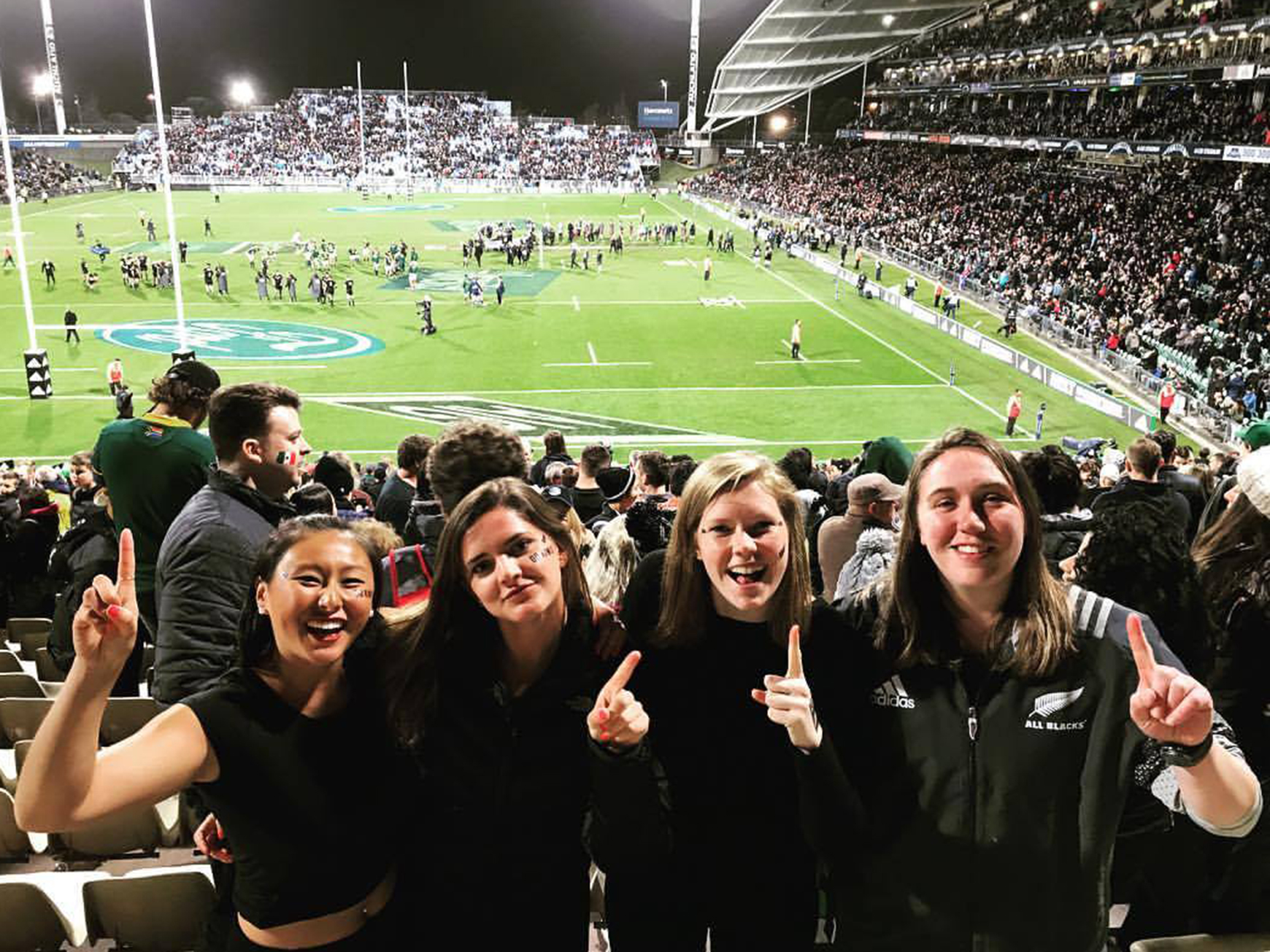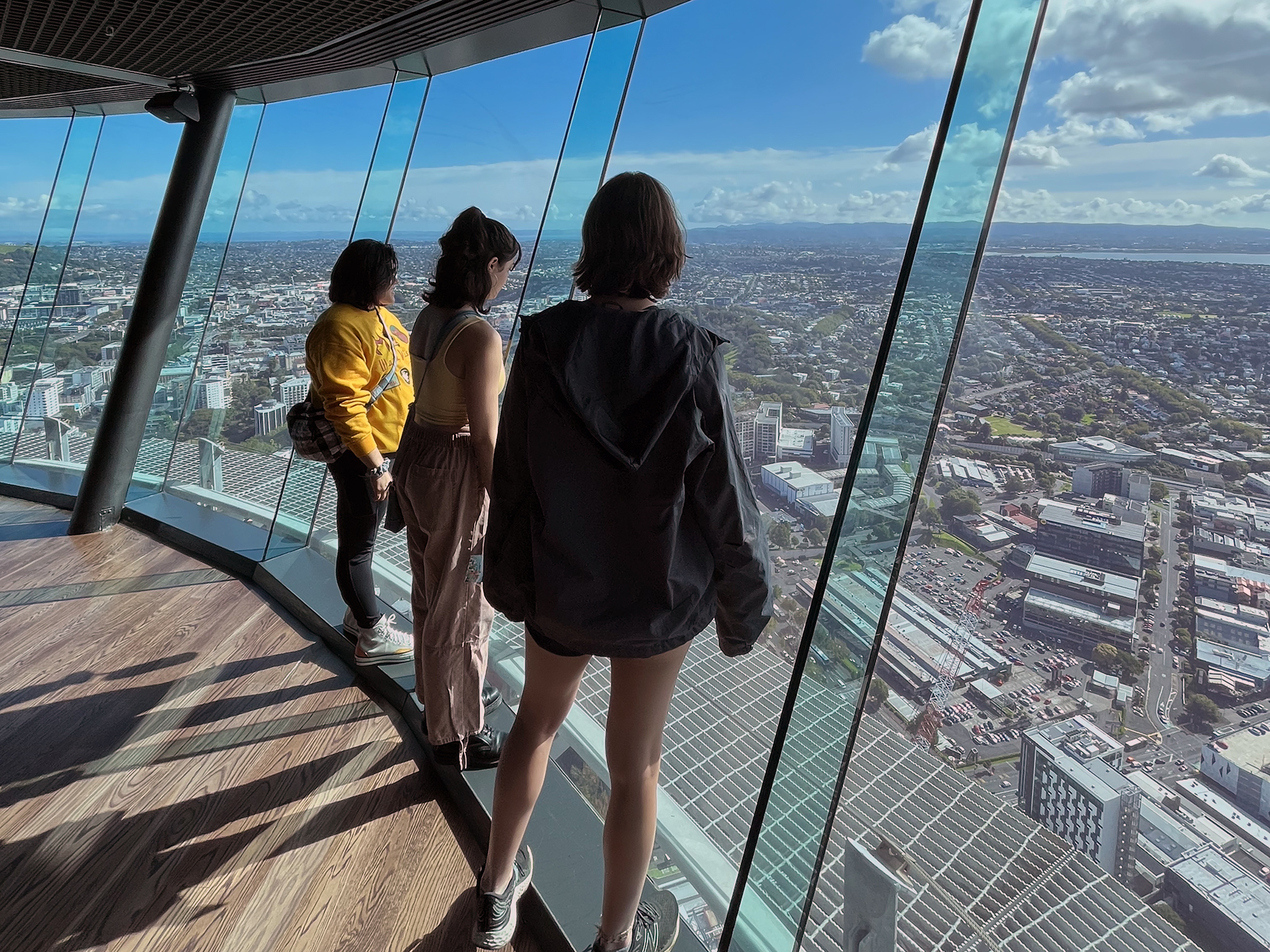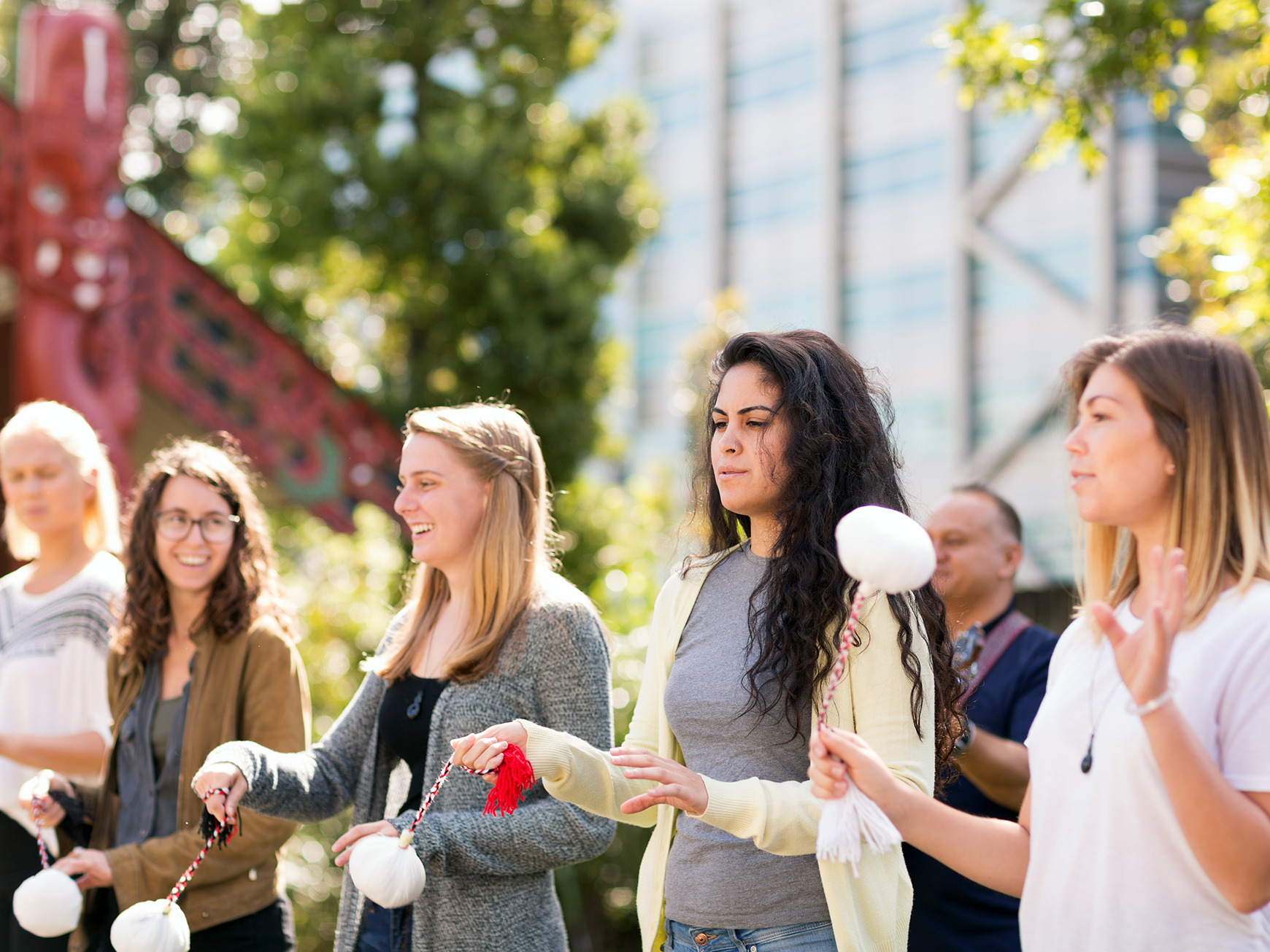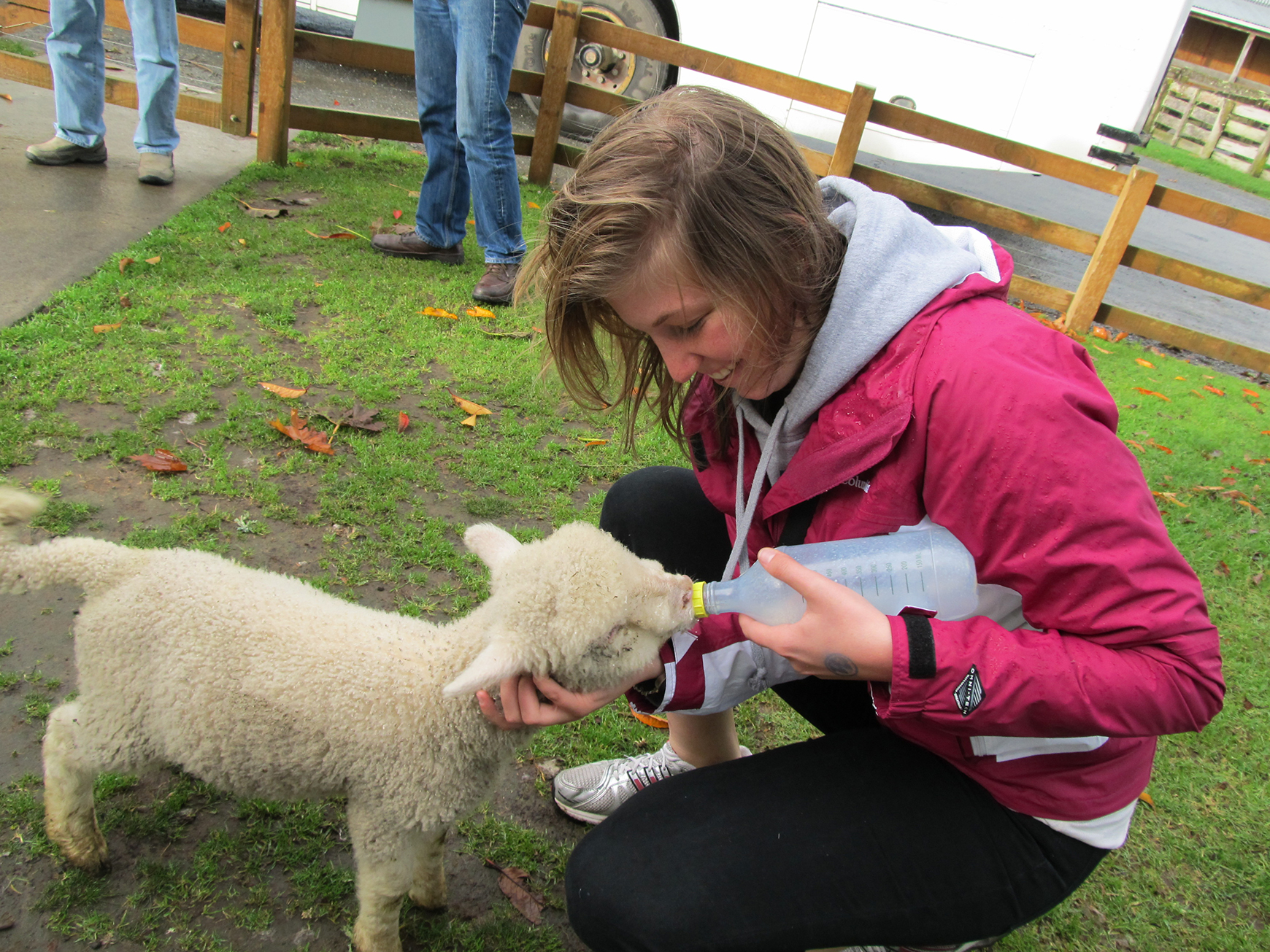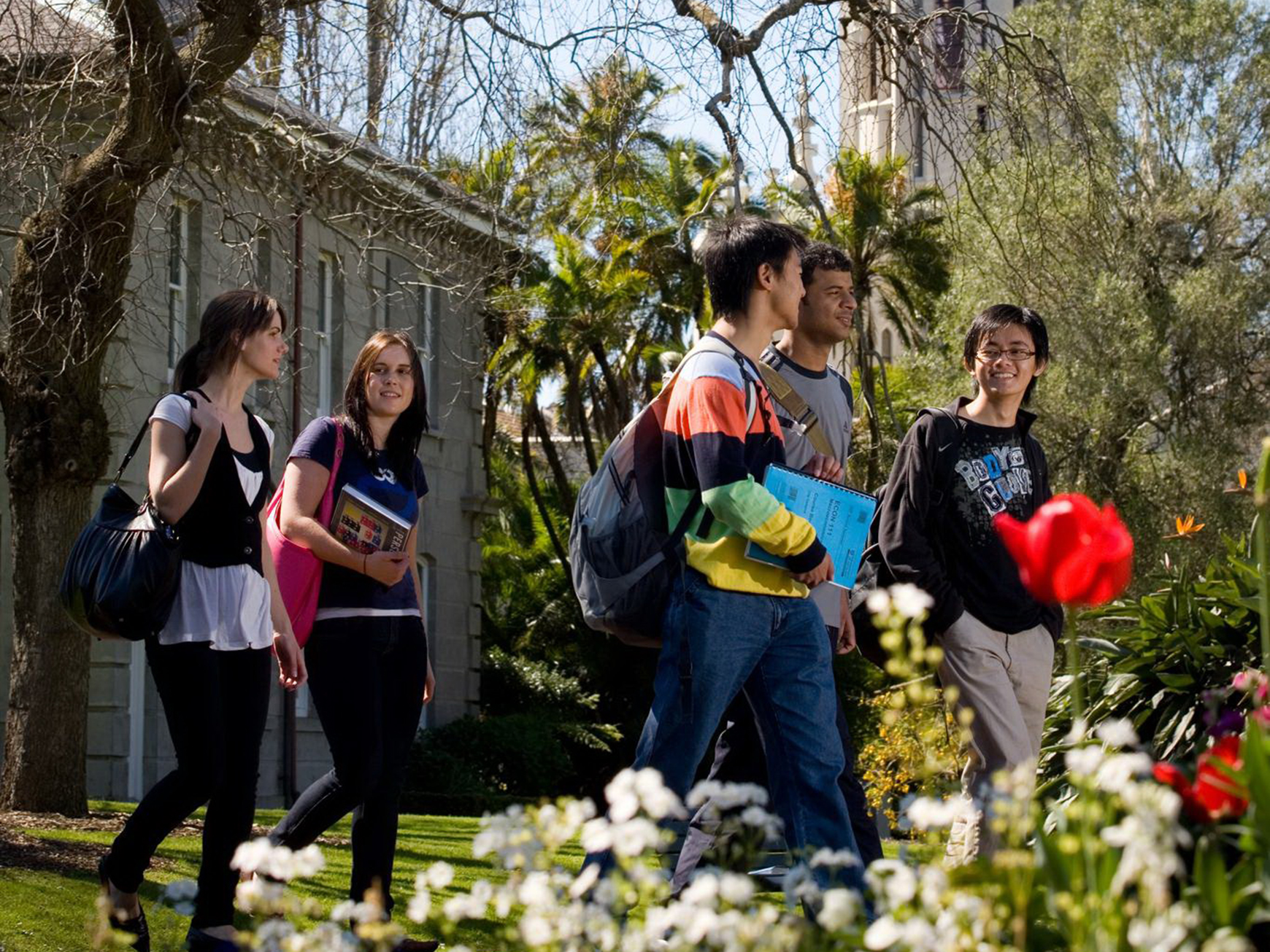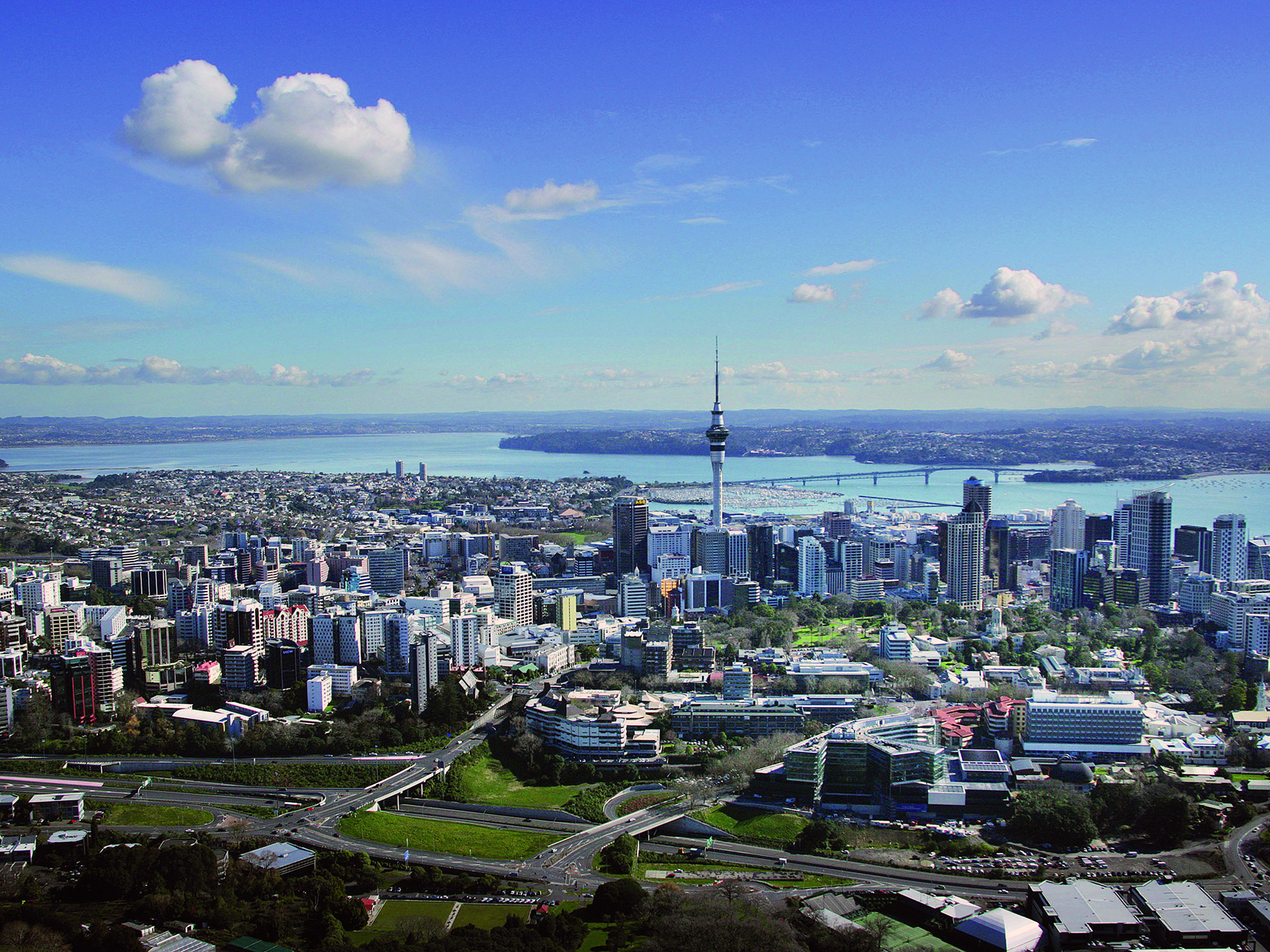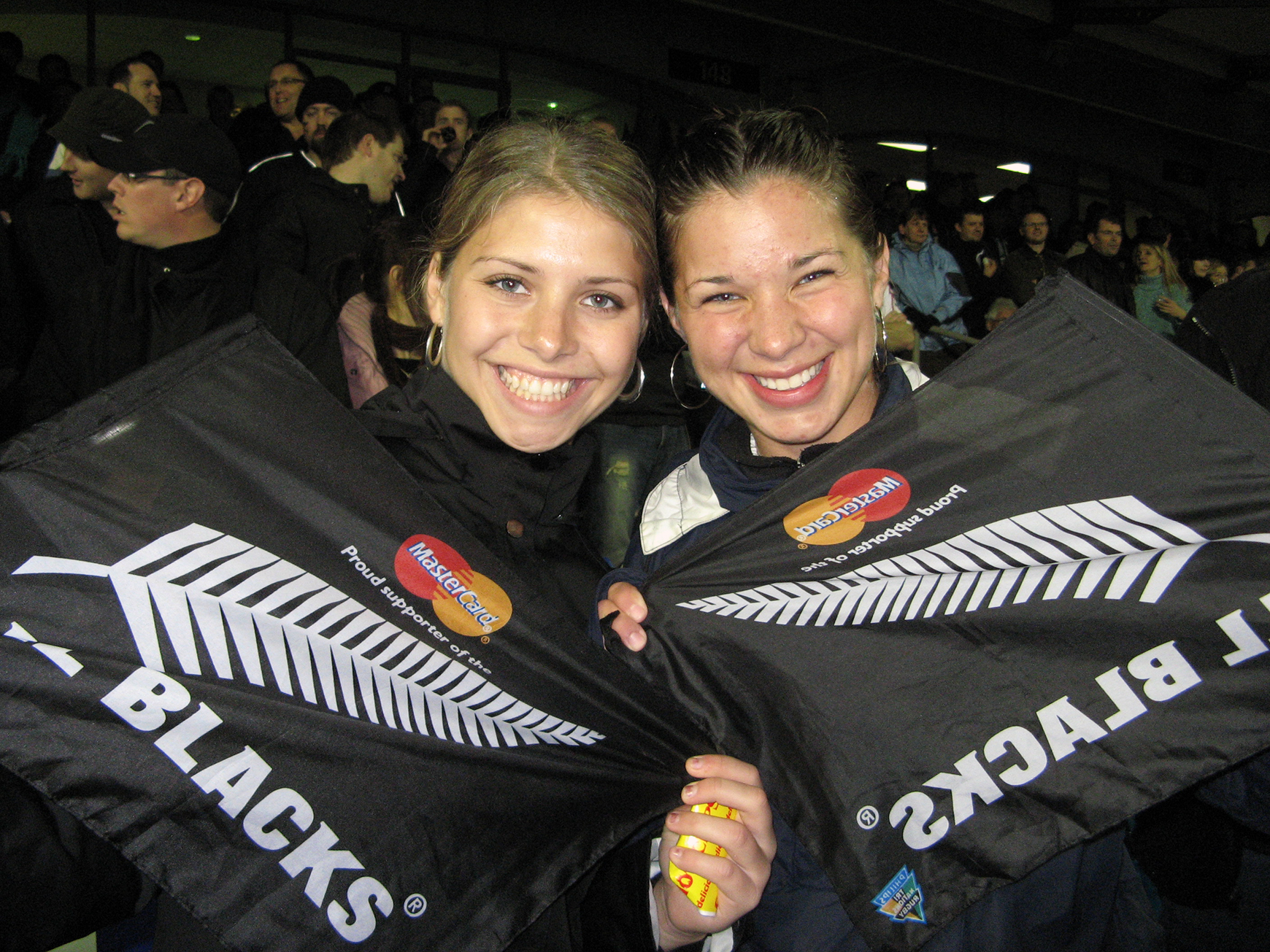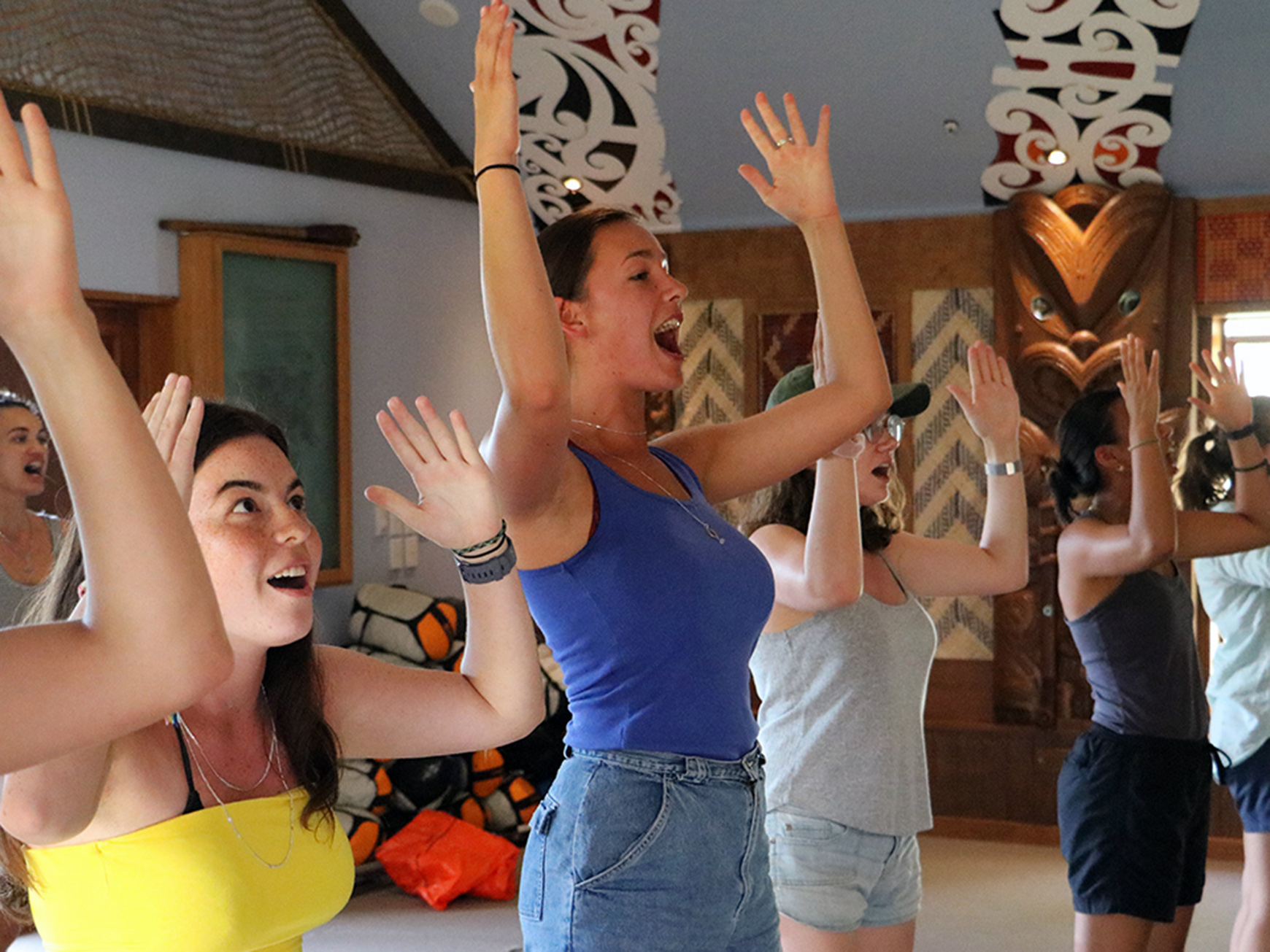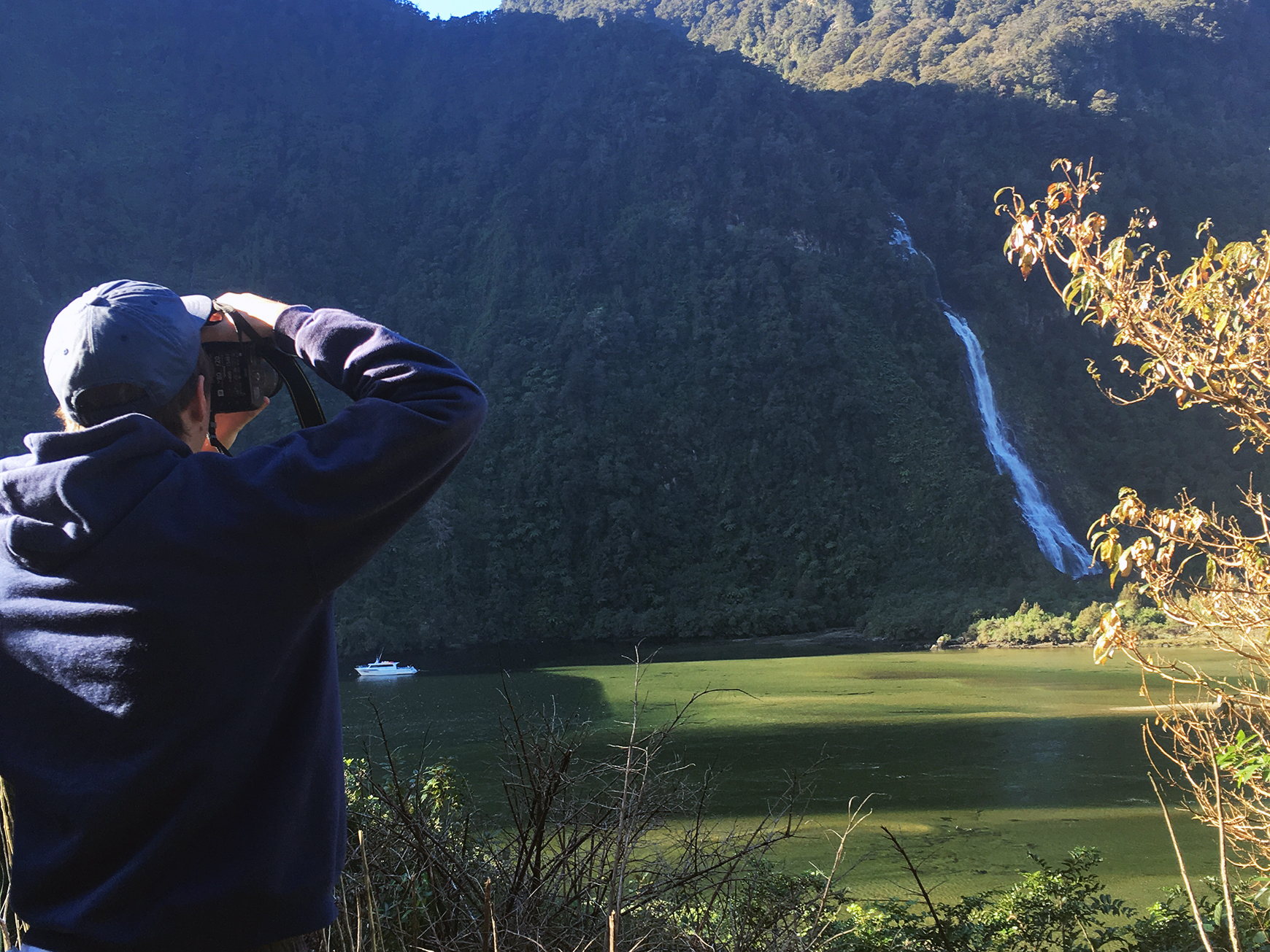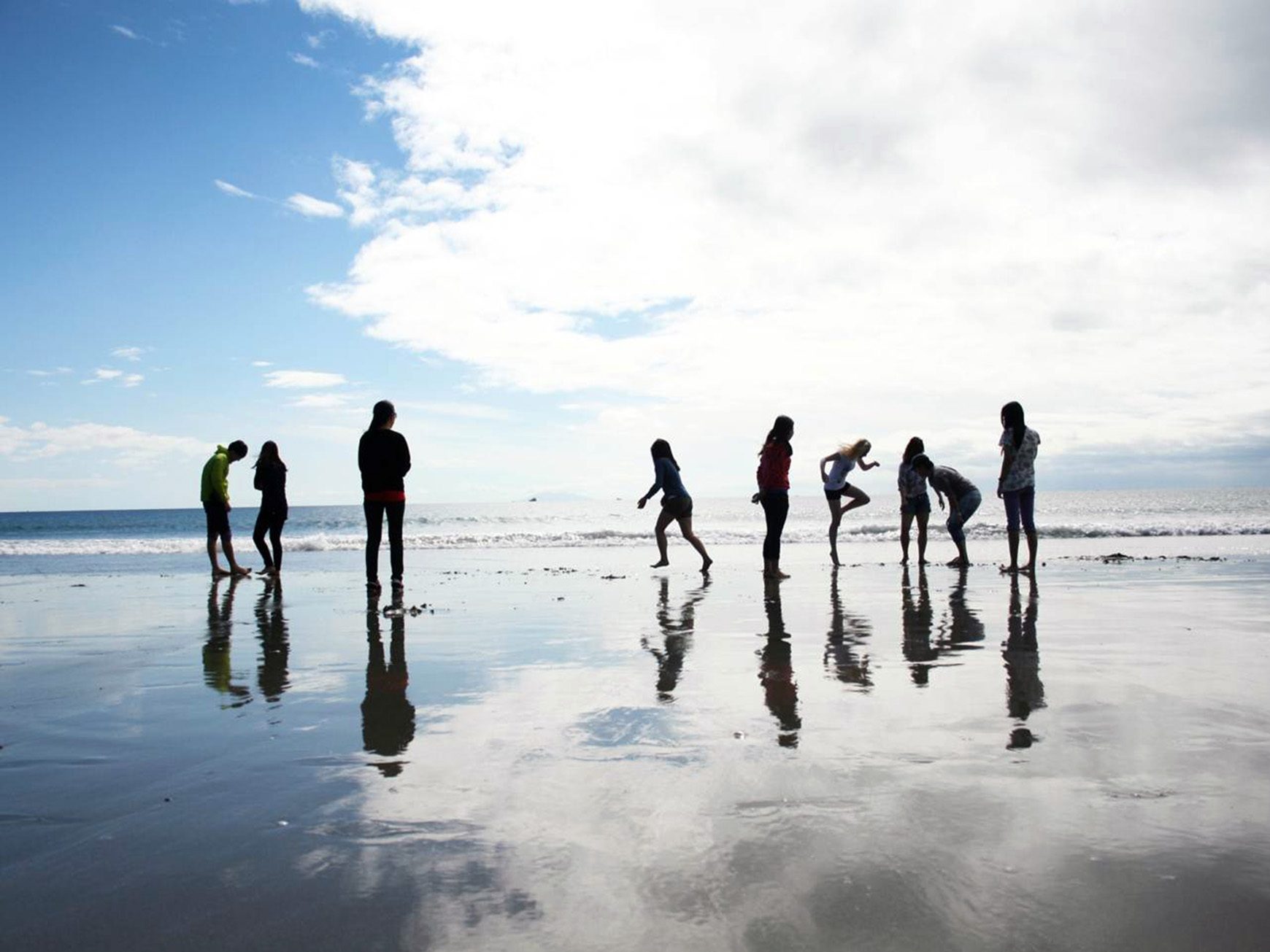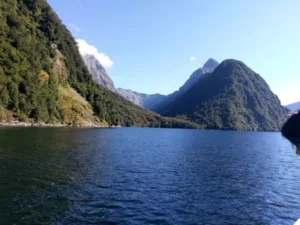Auckland, New Zealand
University of Auckland Partnership
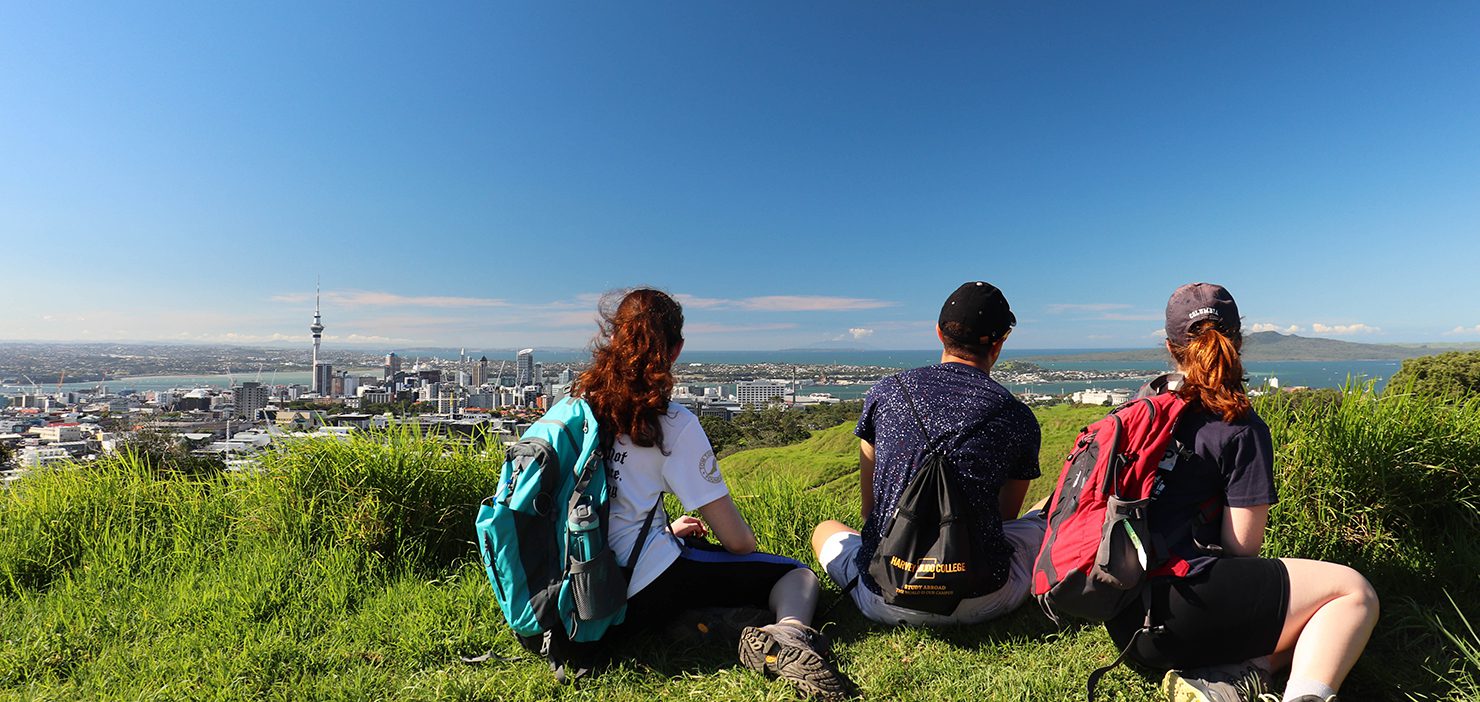

Program Overview
NEW ZEALAND’S TOP-RANKED AND LARGEST UNIVERSITY
See what it’s like to live in one of the world’s top-rated cities for quality of life with a semester at prestigious University of Auckland, considered the country’s most innovative university. New Zealand’s largest city is known for a beautiful coastal setting and subtropical climate. It’s full of parks, galleries, museums, shopping, and cafés, yet also close to beaches, rainforest, and more than 50 volcanoes. Get to know New Zealand’s Māori traditions and gorgeous landscapes with day and overnight trips to places like Bastion Point, Rangitoto Island, and Te Hana Te Ao Marama Marae.
Looking for a scholarship?
Special University of Auckland scholarships are available. See IFSA Scholarships, Grants, and Financial Aid for more information.
Details at a Glance
Application deadline
Minimum GPA
2.40
Credit load
16
Housing
Apartment/Flat, Residence Hall/Dormitory, Single Room Option
Instruction language
English
Language prerequisites
None
Visa required?
Yes. Learn more.
Academics
CHART Your Course
Find the classes you need fast with CHART. Our easy-to-use tool shows you classes recently taken by IFSA students.
Open the University of Auckland online course catalog to discover the classes offered. When you click on the department name, it will drop down to show all the courses offered in that department. Click on a class number or title to bring up a class description.
Credit Conversion
Students typically take 4 classes each semester for a total of 16 U.S. semester credit hours.
15 Points at Auckland = 4 U.S. semester credit hours
Lab & Field Trip Fees
Please review syllabi and course materials when registering for direct-enroll classes. Certain classes may have a one-off lab or field trip fee disclosed in the syllabus or during the first meeting of the class. These fees are not included in your IFSA program fee. You will be responsible for these fees, whether they are billed and paid by IFSA or billed to you.
Classes not available to study abroad students:
- Classes offered in Medicine, Surgery, Pharmacy, Nursing and Optometry.
- Classes running for the whole academic year unless student is enrolled for the academic year (February to November).
- Law classes are available to students majoring in Law except Part IV Advocacy, Mediation and Negotiation; non-Law majoring students may have limits on the classes they can take.
- 100-level courses in Fine Arts, Architecture and Planning unless student is majoring in one of these subjects at their home institution.
- Business 111, 112, and 202
- Property 103
- Graduate School of Management classes running on a quarterly basis.
- Classes ending with the letters F or H (e.g. History 91F or Maorihth 14H). These are foundation year classes and not appropriate for study abroad students.
- Stage I Engineering classes (Enggen 115, Enggen 121, Enggen 131, Enggen 140, Enggen 150, Engsci 111, Electeng 101, Chemmat 121) except for those ending in G.
- Policy 702
Classes with limited enrollment availability:
- Courses ending with the letter G (e.g. Physics 107G)
- Psychology and Drama Stage II and III classes
- 700-level Finance and Accounting classes
The University of Auckland recommends students have a second choice option for each class with limited enrollment availability. Students from these areas must apply early, especially for the fall (second) term.
INTERNSHIPS
Gain valuable career experience through this credit-bearing internship opportunity. This class, worth 4 U.S. semester credit hours, is open to students in their fourth year of study (seniors) majoring in the arts or communication, and who enroll in at least two classes from the Faculty of Arts, which offers humanities and social sciences subjects.
Following an introductory series of seminars, you will work approximately 6-8 hours per week at your placement in the Auckland area, keeping a journal of your experience. You will complete an internship research project related to the organization’s strategic goals or core purpose. Projects come from a range of industries, including media, public relations, advertising, broadcasting, and corporate communication.
The Arts faculty have placements in relevant areas; there is no guarantee of placements outside of Arts-related subject areas. Placements are competitive and not every student will be accepted. Available internship projects can be found here.
You must apply for the internship class in advance. IFSA recommends applying by the designated Early Bird Deadline for the best chance of acceptance, which is approximately two months before the start of the semester. The application form is online. Students must submit an academic reference in addition to working with an internship coordinator extensively before arrival on a tailored resume as well as participate in a virtual pitch session to highlight their skills.
APPLICATION REQUIREMENTS
Eligibility
- You must be at least 18 years of age. Students under 18 may be accepted on a case-by-case basis.
- You must be currently attending or recently graduated from a U.S. or Canadian community college, technical college, two-year college, four-year college, or four-year university.
- You must have completed at least one (1) full-time year of study at your home institution before the beginning of the term.
Recommendation Letter
- An academic letter of recommendation and GPA statement are required for GPAs under 2.7.
- An internship site may request a reference letter before placement is finalized.
TRANSCRIPT
Upon completion of your program, IFSA will send an official Butler University transcript to your home university with your coursework converted to the U.S. semester credit hour system. You will also have access to an unofficial transcript in your IFSA Student Portal. The transcript reflects classes taken, credits attempted, and grades earned during your term abroad. This service is included in your study abroad program at no additional cost. See our Transcripts page for more information.
Excursions
Activities and excursions are designed to pull you into the communities you visit and encourage cultural connections of every kind. There’s no extra fee to participate in these optional outings—everything is included in your program fee.
Below are a selection of activities and excursions from previous terms; options may vary for your program. Due to the seasonal nature of many of program activities, we cannot guarantee a specific activity or excursion will be available in a given term or program.
Activities
- Learning Plan Check-in: Three times during the semester, catch up for a one-on-one with an IFSA team member to discuss your academic progress, housing, and general well-being. This is a great opportunity to ask any questions about roommates, lecturers, and new experiences.
- Weekly Catch-up: Meet your IFSA Student Experience Coordinator on campus or at a local hiking trail, farmers market, museum, or pub quiz night for a snack and take a bit of time out with your IFSA community.
- Reentry Workshop: Study abroad in New Zealand is a great addition to your resume. Learn how to highlight all the transferable skills gained in a powerful and succinct way that will appeal to prospective employers. Reflect on your experience and consider the transition back to your home culture.
- Celebration Dinner: The farewell dinner is the last official get-together with the IFSA crew. It’s time to recount great experiences and reflect on personal and academic growth before preparing for final exams! It’s a fun and memorable send-off, with an awesome culinary experience and plenty of laughs.
- Auckland Cultural: Enjoy this moving cultural performance introducing you to the meaning behind Māori Kapa Haka (performing arts), Māori kupu (words), and to fundamental ideas that underpin Te Ao Māori (The Māori World). Then explore the Auckland War Memorial Museum and its many exhibits detailing the geology and history of New Zealand, before sharing a meal together to end the day.
- Auckland Day Trip: Auckland is famous for its volcanoes, and what better volcano to explore than its youngest, Rangitoto! Take a beautiful ferry ride out across the harbor to Rangitoto Island, which emerged from the waters only 600 years ago. Today it stands as a predator-free island, meaning as you hike up its rugged lava terrain through the world’s largest Pohutukawa forest, you’ll get many chances to hear, spot, or even meet some of New Zealand’s native birds like Tui, Kereru, or Kakariki. Near the top, break to explore some of Rangitoto’s lava caves, before pushing to the summit for lunch with a view of the Auckland skyline.
- Auckland Overnight: Travel north of Auckland for the weekend. The excursion starts with a visit to Brick Bay Winery to experience firsthand one of New Zealand’s most important export industries. Afterward, saunter through the on-site sculpture trail for a taste of what the local artists have to offer. Later travel north for a Noho Marae (overnight stay) in Te Hana, where you’ll enjoy a traditional Māori dinner and a tour of a recreation 17th century village to learn tribal history, tales, and routines. The next morning, work up an appetite with a short hike to the Dome Valley Lookout to enjoy the view, then carry on to Matakana to finish the weekend off with a delicious restaurant meal.
- Auckland Volunteer–Kaitiakitanga: Kaitiakitanga (guardianship of environmental resources) is a concept underpinning much of New Zealand’s identity. Famous for its nature and wildlife, the people of New Zealand believe in being active caretakers of both. Get involved with a local organization and contribute to projects making a real difference! On previous outings, IFSA students have helped to plant over 1,000 trees, helped maintain crucial drainage channels for a reserve to improve habitats for native wildlife, and taken part in the regeneration of a recently daylighted stream to increase the local area’s ability to prevent flooding. It’s a great way to get involved, meet some of the locals, and share some laughs.
Housing and Meals
Housing
Apartment/Flat, Residence Hall/Dormitory, Single Room OptionMeals
Self-CateringDetails
Students live close to campus, in either a cluster of student apartments or a high-rise dorm-style, both of which are operated by the university.
Sample housing
Explore Carlaw Park Student Village to see what your Auckland home might be like:
- Location: Central city campus, close to parks and local amenities.
- Commute: A 10-minute walk to campus from housing.
- Living space: Furnished apartments (flats) for three to five students in a four-building complex. Each student has their own bedroom with bed, desk, chair, and storage. Complete bedding and towel set provided. Flatmates share a bathroom and a kitchen equipped with microwave, refrigerator, cook top, kettle, toaster, and kitchen ware basics. There is an oven in the communal kitchen.
- Meals: No meal plan. Students purchase or prepare meals, and often say cooking together is a fun, social part of the day.
- Other details: Internet and electricity included. 24-hour student support. On-site laundry facilities. Common areas include outdoor space with barbecue, large kitchen, lounge, game room, TV room, and study space. Resident advisors host social activities. Laundry costs included.
- Nearby: Auckland Waterfront. Britomart Precinct. Parnell Village. Supermarket.
Dates and Fees
Get Started
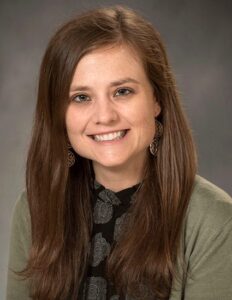
Brittany Brooks
Enrollment Counselor
